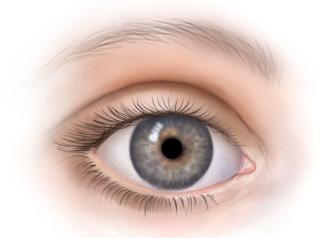
Vitamin B plays a crucial role in maintaining good overall health, and while it may not be directly associated with eye health, it indirectly affects eye health in several ways. The B-complex vitamins, which include B1 (thiamine), B2 (riboflavin), B3 (niacin), B5 (pantothenic acid), B6 (pyridoxine), B7 (biotin), B9 (folate), and B12 (cobalamin), are essential for various bodily functions, including the maintenance of the eyes. Here's how they influence eye health:
- B2 (Riboflavin): Riboflavin is essential for maintaining healthy eyes. It helps in the conversion of other nutrients like vitamin A into a usable form, which is critical for maintaining good vision. A deficiency in riboflavin can lead to conditions like photophobia (sensitivity to light), itching, burning, and redness in the eyes.
- B6 (Pyridoxine): Vitamin B6 is important for overall eye health as it plays a role in the production of neurotransmitters, including those involved in vision. A deficiency in B6 can lead to symptoms like eye twitching and other neurological issues.
- B9 (Folate): Folate is essential for DNA synthesis and repair, which is important for maintaining healthy cells throughout the body, including those in the eyes. A deficiency in folate may contribute to eye-related health problems.
- B12 (Cobalamin): Vitamin B12 is important for maintaining the health of nerves, including those that transmit visual information from the eyes to the brain. Deficiencies in B12 can lead to vision problems and damage to the optic nerve.
- Biotin (B7): While there is limited direct evidence linking biotin to eye health, biotin is involved in overall cellular health and metabolism, which indirectly affects various bodily functions, including those related to the eyes.
- Niacin (B3) and Pantothenic Acid (B5): Niacin and pantothenic acid also play roles in overall health and cellular metabolism. Deficiencies in these vitamins can lead to skin and eye problems, among other issues.
- Thiamine (B1): Thiamine is involved in maintaining healthy nerves, which indirectly influences eye health. Severe thiamine deficiency can lead to optic neuropathy, which can affect vision.
It's important to note that a well-balanced diet that includes a variety of nutrients, including vitamin B, is essential for overall health, including the health of your eyes. If you suspect a deficiency in any of these B vitamins and experience eye-related problems, it's important to consult with a healthcare professional. In most cases, vitamin B deficiencies can be corrected through dietary changes or supplementation, which can help maintain or improve your eye health. However, specific eye conditions may also require the attention of an eye specialist or ophthalmologist.






